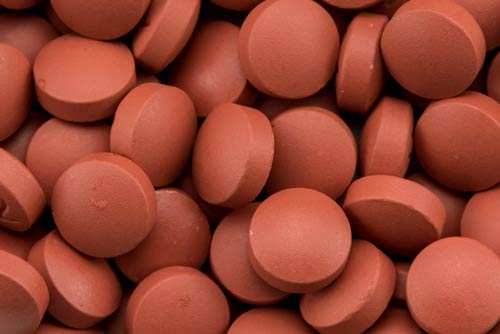Millions of Americans pop an ibuprofen for aches and pains without giving it a second thought. After all, if it’s sold without a prescription, it must be safe, right?
Actually, no.
A major new study shows taking ibuprofen (Advil, Motrin) is not only risky, it can kill you without warning.
Researchers in Denmark looked at almost 29,000 patients who had experienced an out-of-hospital cardiac arrest.
Cardiac arrest is not the same as a heart attack. It’s far more deadly.
With a heart attack, a clogged artery blocks blood flow to the heart. Patients usually survive because intense chest pain clearly indicates a heart attack. They have time to get medical help before their heart stops and they die.
Cardiac arrest symptoms are more subtle. It is an electrical malfunction. The heart abruptly stops beating. Death often occurs in about five minutes if the victim does not receive immediate treatment.1
Each year, over 500,000 Americans suffer cardiac arrest. Nine out of 10 die unless they are already in the hospital when it happens.
By comparison, only about 10% of heart attacks are fatal.2
‘Increased Risk of Cardiac Arrest’
The researchers looked specifically at whether cardiac arrest victims had taken a non-steroidal anti-inflammatory drug (NSAID) in the 30 days prior to their heart stopping.
The study found that two NSAIDs were linked to cardiac arrests. One was ibuprofen. It increased cardiac arrest chances by 31%. The other was diclofenac (Voltaren). It increased risk by 50%. Diclofenac is available only by prescription.
Dr. Gunnar H. Gislason is a professor of cardiology at Copenhagen University Hospital. He is the study’s co-author. “The findings are a stark reminder that NSAIDs are not harmless,” he said. “They are associated with significantly increased risk of cardiac arrest.”3
The study recently was published in the European Heart Journal–Cardiovascular Pharmacology.4
5 Safe and Natural Alternatives to NSAIDs
If you must take pain medication, you can lower the danger by taking the lowest effective dose. And limit the length of time you take the drug.
Never take more than one type of NSAID at once. And if you are a long-term user of NSAIDs, try to take weeklong breaks from them. Some experts believe this lowers the heart risk.5
Stay away from ibuprofen and diclofenac. As we mentioned, the study found, these are dangerous.
Switching to acetaminophen (Tylenol) isn’t a good idea, either. It has been tied to liver and kidney disease, and hearing loss. It’s especially dangerous when mixed with alcohol.6
If you’re going to use a pain-relieving drug, choose aspirin. It is the oldest and safest. But it can cause stomach bleeding in some people.
Better yet, consider these natural, safe, and effective alternatives:7
- Turmeric reduces pain from muscle pulls and other injuries. A typical turmeric supplement dose is 400-600 mg.
- Willow bark contains salicin. This is the same compound in aspirin that relieves pain and inflammation. It treats headache, back pain, menstrual cramps, fever, flu, tendonitis, bursitis, and osteoarthritis. Take 1-3 grams.
- Capsaicin is the compound in hot peppers that makes them spicy. It is applied as a topical treatment for arthritis pain.
- Bromelain is an enzyme extracted from pineapple. It is effective in treating inflammation associated with rheumatoid arthritis. Take 250 mg twice daily.
- Magnesium can be extremely effective for migraines. A recommended dosage is 400-600 mg.
These natural products allow many people to throw away their pain drugs…and they won’t stop your heart.
Editor’s Note: There are other powerful, natural solutions that can help you conquer chronic pain…Like the desert herb that may replace pain prescriptions for both osteoarthritis and rheumatoid arthritis.
Get all the details HERE.
Like this Article? Forward this article here or Share on Facebook.
References:
1 https://en.wikipedia.org/wiki/Cardiac_arrest
2 https://www.health.harvard.edu/healthbeat/how-heart-attacks-became-less-deadly
3 https://www.healthnutnews.com/ibuprofen-can-stop-your-heart-31-increase-in-cardiac-arrest-risk/
4 https://academic.oup.com/ehjcvp/article/3/2/100/2739709
5 https://www.health.harvard.edu/blog/fda-strengthens-warning-that-nsaids-increase-heart-attack-and-stroke-risk-201507138138
6 https://www.institutefornaturalhealing.com/2018/02/are-advil-tylenol-messing-with-head/
7 https://www.institutefornaturalhealing.com/2018/02/are-advil-tylenol-messing-with-head/

